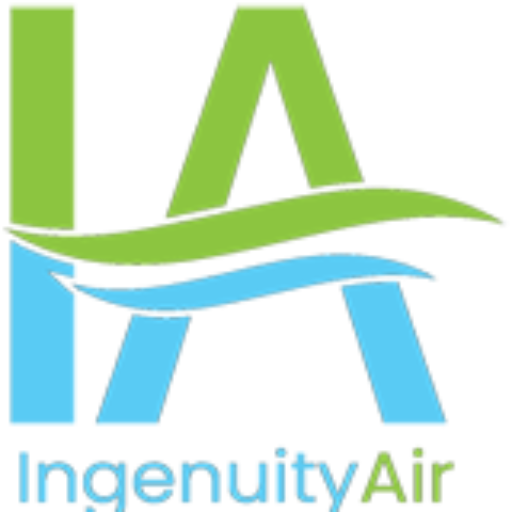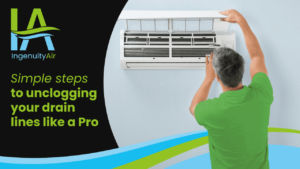
How to combat Cold and Flu Season Germs with clean air
Explore expert tips for better indoor air quality and learn about advanced air purification technologies. Breathe easier and live healthier with this guide.
During the scorching summer months, a properly functioning air conditioner is a lifesaver in keeping your home comfortable and cool. However, an air conditioner not cooling can quickly turn a blissful summer day into a hot and uncomfortable nightmare. It is crucial to address this common issue promptly to prevent further damage to your AC unit and restore the desired temperature in your home.
Moreover, an AC not cooling efficiently can lead to increased energy bills. A faulty unit needs to work harder to maintain the desired temperature, resulting in higher energy consumption and expenses. Additionally, an air conditioner not working properly can have adverse effects on your health and well-being, causing discomfort and potential health issues. It can lead to dehydration, heat exhaustion, and respiratory problems, particularly for people with asthma or allergies. Therefore, it’s essential to ensure that your AC unit is functioning properly to maintain a comfortable and healthy indoor environment.
In this article, we will provide a step-by-step guide on how to fix an air conditioner that is not cooling, helping you avoid costly repairs and unnecessary discomfort.
Before we dive into the common mechanical issues that can cause an air conditioner not to cool, it’s essential to understand how these units work. Air conditioners absorb warm air from your home, then convert it into cool air through refrigeration. The refrigeration process involves using a compressor, evaporator coil, and refrigerant.
However, when there’s a mechanical problem with any of these components, your AC unit may not cool effectively. Below are some of the most common mechanical issues that can cause an air conditioner not to cool:
Dirty or clogged air filters are one of the most common causes of an air conditioner not cooling effectively.
Over time, the filters can become filled with dust, dirt, and other debris, which restricts the airflow and causes the unit to work harder to cool your home. This leads to reduced cooling efficiency and increased energy consumption, as the unit has to work harder to achieve the desired temperature. Therefore, it’s recommended to clean or replace the air filters every 1-3 months, depending on usage.
This is another common mechanical issue that can cause an air conditioner not to cool. Refrigerant is the substance that absorbs and releases heat in the refrigeration process, and a leak can cause the refrigerant levels to drop, reducing the unit’s cooling efficiency. This can lead to decreased cooling power, longer run times, and higher energy bills.
It’s important to note that refrigerant leaks can also have negative environmental impacts, so it’s crucial to address them promptly and safely by a licensed HVAC professional like Ingenuity Air.
The compressor is a vital component in the refrigeration process and is responsible for compressing the refrigerant and circulating it through the unit. If the compressor is faulty, the refrigerant may not circulate correctly, leading to reduced cooling efficiency or no cooling at all.
Compressor issues can result from various factors, including overheating, electrical problems, or mechanical wear and tear. At Ingenuity Air we can help you get a proper diagnosis and repair. Contact us today to schedule an air conditioning repair service and ensure that your AC unit is functioning properly to maintain a comfortable and healthy indoor environment.
If the thermostat isn’t working correctly, it may not communicate the correct temperature readings to the unit, causing it to run continuously or not turn on. This can result in no or limited cooling, uncomfortable indoor temperatures, and higher energy bills.
Replacing a faulty thermostat is a relatively simple repair that a homeowner or HVAC professional like Ingenuity Air can often do. Reach out today to schedule an appointment and have your faulty thermostat replaced by one of our experienced professionals.
Electrical components are an essential part of an air conditioner and are responsible for regulating and coordinating the unit’s functions. When electrical components fail, it can cause an AC unit not to cool correctly. Here are the main electrical components of an air conditioner:
Identifying and addressing electrical issues with these components can help restore proper cooling function to your air conditioner.
When your air conditioner fails to cool your home, it can be frustrating, uncomfortable, and costly. So before calling a professional, try DIY fixes to see if you can get your AC unit running again:
While homeowners can do some home repairs, specific air conditioner issues require the expertise of a professional HVAC technician. If the repairs mentioned above don’t fix the problem or if you notice any of the following signs, it’s time to call a professional:
Attempting to fix an AC unit without proper training and tools can be dangerous and cause further damage to the unit. That’s where a company like Ingenuity Air can help. Our team of qualified technicians has the experience and knowledge to diagnose and fix any air conditioner issue efficiently and effectively. Contact us today to schedule an appointment and ensure that your AC unit is functioning properly. Let us take care of it for you!



Explore expert tips for better indoor air quality and learn about advanced air purification technologies. Breathe easier and live healthier with this guide.

Discover the future of home heating & cooling with Trane’s variable speed products. Elevate your indoor comfort today with Ingenuity Air, your trusted HVAC partner.

Learn how to unclog your AC drain line with our expert guide. DIY methods, professional assistance, and tips from Ingenuity Air. Restore optimal AC performance!

Ingenuity Air is a full-service mechanical services contractor serving Central Florida and beyond. Our team is dedicated to providing reliable and honest solutions for homes and businesses to stay comfortable, efficient, and worry-free.
Services:
Commercial:
IAQ Services: